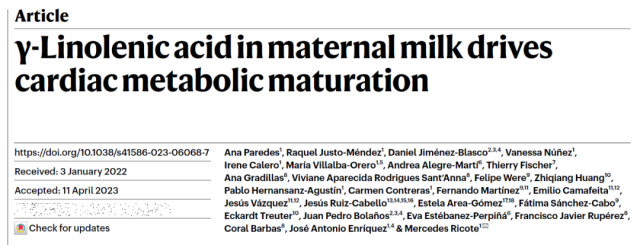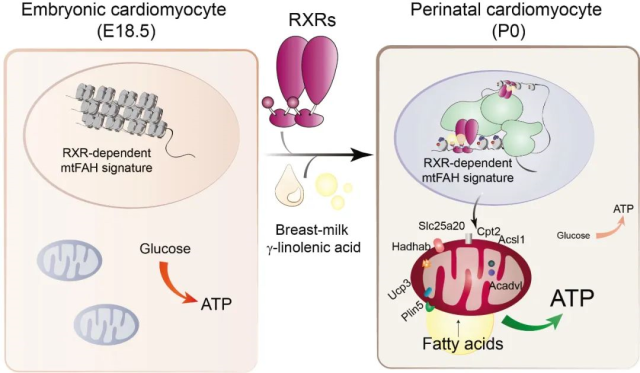Nature: A fatty acid in breast milk is essential for heart development after birth
- Normal Liver Cells Found to Promote Cancer Metastasis to the Liver
- Nearly 80% Complete Remission: Breakthrough in ADC Anti-Tumor Treatment
- Vaccination Against Common Diseases May Prevent Dementia!
- New Alzheimer’s Disease (AD) Diagnosis and Staging Criteria
- Breakthrough in Alzheimer’s Disease: New Nasal Spray Halts Cognitive Decline by Targeting Toxic Protein
- Can the Tap Water at the Paris Olympics be Drunk Directly?
Nature: A fatty acid in breast milk is essential for heart development after birth
- Should China be held legally responsible for the US’s $18 trillion COVID losses?
- CT Radiation Exposure Linked to Blood Cancer in Children and Adolescents
- FDA has mandated a top-level black box warning for all marketed CAR-T therapies
- Can people with high blood pressure eat peanuts?
- What is the difference between dopamine and dobutamine?
- How long can the patient live after heart stent surgery?
Nature: A fatty acid in breast milk is essential for heart development after birth.
The heart of mammals (including humans) requires a constant supply of energy to maintain contraction.
The highly flexible metabolism of cardiomyocytes enables them to meet their ATP requirements by consuming a wide range of substrates , including glucose, lipids, lactate, amino acids, and ketone bodies, depending on physiological environment and age.
Fetal cardiomyocytes rely primarily on the oxidation of glucose and lactate, but the main source of ATP after birth is mitochondrial lipid oxidation.
However, despite the recognized importance of mitochondria in the adult heart, their contribution to fetal and perinatal cardiac function has been poorly explored.
The fetal-to-neonatal transition of the heart is thought to occur gradually during the first two weeks of life, culminating in the formation of a functional mitochondrial compartment in which fatty acid β-oxidation occurs.
This adaptive step is critical to maintaining a beating heart and survival, yet little is known about the molecular mechanisms and upstream signals that direct this metabolic transition.
On May 24, 2023, researchers from the Spanish National Cardiovascular Research Center published a research paper entitled: γ-Linolenic acid in maternal milk drives cardiac metabolic maturation in the journal Nature .
The study shows that gamma -linolenic (GLA), a fatty acid found in breast milk , is critical for the maturation of newborn mouse hearts .
These findings shed light on how environmental factors affect heart development in newborn mice after birth.

Birth presents many challenges to the newborn heart, requiring heart cells to undergo multiple changes and maturation.
Cardiomyocytes, for example, need to reshape their preference for the fuel they need, switching from glucose to fatty acids, so the heart can beat efficiently for life. But the mechanisms behind this maturation process are not well understood.
In this latest study, the research team found in mice that a fatty acid in mouse breast milk called gamma-linolenic acid (GLA) is responsible for guiding the metabolic adaptation of the newborn heart after birth.
GLA cannot be synthesized in mice (or humans) , it must be obtained through ingestion.
Newborn mice fed human milk from mothers on a fat-free diet could not survive beyond two days after birth, but supplementing the milk with GLA restored normal survival in newborn mice.
The research team also identified the Retinoid X Receptor in cardiomyocytes as a target for GLA binding and activation to initiate the metabolic maturation process of cardiomyocytes.

The research team said that this study only focused on mice, and whether GLA is also necessary for neonatal cardiac function or metabolic maturation in human milk remains to be further studied.
Nature: A fatty acid in breast milk is essential for heart development after birth
(source:internet, reference only)
Disclaimer of medicaltrend.org
Important Note: The information provided is for informational purposes only and should not be considered as medical advice.



